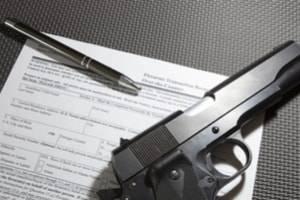Recent Blog Posts
Which Factors Contribute to a Higher BAC?
 A recent poll by the Texas Medical Center Health Policy Institute suggests that more Texans are in favor of stricter laws for driving while intoxicated than the national average. According to the results:
A recent poll by the Texas Medical Center Health Policy Institute suggests that more Texans are in favor of stricter laws for driving while intoxicated than the national average. According to the results:
- 60 percent of Texans support lowering the blood alcohol concentration limit to 0.05, as opposed to 54 percent of national respondents; and
- 48 percent of Texans support lowering the BAC limit to zero, as opposed to 46 percent of national respondents.
Approving a zero-tolerance BAC law is unrealistic, but a 0.05 BAC limit has precedence. Utah is set to enact the country’s first 0.05 BAC limit at the end of the year, which may encourage other states to do the same.
BAC Factors
How much alcohol does it take to reach a 0.05 BAC? That depends on several factors:
- Gender: It takes women fewer drinks than men to have a high BAC because their bodies have a lower water content and fewer stomach enzymes to break down alcohol.
Property Damage, Personal Injury Add to DWI Charge
 In a bizarre sequence of events, three drivers in Austin, Texas, were arrested for driving while intoxicated after being involved in three separate crashes at the same location and on the same night. Police officers were at the scene of a DWI crash when an allegedly intoxicated driver crashed into the back of a police car. After an ambulance arrived at the scene, another allegedly intoxicated driver crashed into that vehicle. No one was critically injured in the incidents, though three people were taken to the hospital with non-life-threatening injuries. Causing property damage or personal injury in a DWI incident can result in harsher punishment if you are convicted.
In a bizarre sequence of events, three drivers in Austin, Texas, were arrested for driving while intoxicated after being involved in three separate crashes at the same location and on the same night. Police officers were at the scene of a DWI crash when an allegedly intoxicated driver crashed into the back of a police car. After an ambulance arrived at the scene, another allegedly intoxicated driver crashed into that vehicle. No one was critically injured in the incidents, though three people were taken to the hospital with non-life-threatening injuries. Causing property damage or personal injury in a DWI incident can result in harsher punishment if you are convicted.
Property Damage
Property damage in a DWI case most often involves damage done to another vehicle as the result of a crash. Prosecutors can add property damage as a separate charge from your DWI charge. Property damage is a class C misdemeanor, punishable by a fine of as much as $500. However, you may also face civil penalties if the owner of the damaged property files a lawsuit against you. The lawsuit is separate from the results of your criminal case and may require you to pay for repairing or replacing the property.
Behavior You Should Avoid with a Pending DWI Case
 Your character is on trial when you are charged with driving while intoxicated. Arguments in a DWI case often come down to whether you seem reliable when you deny having been impaired or intoxicated during your arrest. Your behavior after your arrest and leading up to your court appearance should not contradict your efforts to present yourself as a responsible person. The court is more likely to believe that you decided to drink and drive if you show continued poor judgment. There are four actions that can undermine your DWI defense:
Your character is on trial when you are charged with driving while intoxicated. Arguments in a DWI case often come down to whether you seem reliable when you deny having been impaired or intoxicated during your arrest. Your behavior after your arrest and leading up to your court appearance should not contradict your efforts to present yourself as a responsible person. The court is more likely to believe that you decided to drink and drive if you show continued poor judgment. There are four actions that can undermine your DWI defense:
- Talking About Your Case on Social Media: You speak more candidly when having a private conversation with friends than you would in court. You may tell your friends about how much you had to drink and how you felt on the night of your arrest. People mistakenly believe that their social media conversations are private. Anything you write on social media is a digital record that may become public. Prosecutors are monitoring your social media accounts to see if you post anything that may incriminate yourself. If they find something, they will try to present it in court as evidence of your guilt.
DWI Conviction Prohibits Firearms Possession
 Texas has strict requirements for permitting residents to have a license to possess a firearm. Though the second amendment to the U.S. Constitution protects the right to possess firearms, lawmakers believe it is a danger to public safety to allow people convicted of serious crimes to own firearms. Being convicted of a felony or class A or B misdemeanor disqualifies you from having a Texas firearms license for several years. Thus, a conviction for driving while intoxicated will result in your firearms license being revoked.
Texas has strict requirements for permitting residents to have a license to possess a firearm. Though the second amendment to the U.S. Constitution protects the right to possess firearms, lawmakers believe it is a danger to public safety to allow people convicted of serious crimes to own firearms. Being convicted of a felony or class A or B misdemeanor disqualifies you from having a Texas firearms license for several years. Thus, a conviction for driving while intoxicated will result in your firearms license being revoked.
Misdemeanors
A first-time DWI offense without any aggravating factors is a class B misdemeanor. Merely being charged with DWI causes an automatic suspension of your firearms license while your case is ongoing. If you are convicted, your license will be revoked, and you must wait five years to reapply for the license.
A second DWI offense is a class A misdemeanor but could disqualify you from having a firearms license. Texas law states that a person who is twice convicted of a drug or alcohol-related offense within 10 years is considered chemically dependent and ineligible to receive a firearms license.
Mistakes Can Occur During DWI Blood Test Process
 Though more accurate than a breath test, a blood test can still have inaccurate results in a driving while intoxicated case. There are many chances for a blood sample to become contaminated during the process, resulting in the sample showing a higher blood alcohol concentration level than was actually in the driver’s blood at the time of the arrest. An experienced DWI defense attorney knows where errors are likely to occur in the blood test process that may make the test results inaccurate and inadmissible in court.
Though more accurate than a breath test, a blood test can still have inaccurate results in a driving while intoxicated case. There are many chances for a blood sample to become contaminated during the process, resulting in the sample showing a higher blood alcohol concentration level than was actually in the driver’s blood at the time of the arrest. An experienced DWI defense attorney knows where errors are likely to occur in the blood test process that may make the test results inaccurate and inadmissible in court.
Blood Drawing
Mistakes in taking the suspect’s blood can contaminate the sample from the start. A police officer drawing your blood is not always as skilled as a medical professional. The officer may make a mistake by:
- Waiting too long to draw the blood sample;
- Contaminating the sample with the alcohol swab used to clean the extraction site on the skin; or
Anonymous Tips Can Justify DWI Stops
 A police officer must have a reasonable suspicion that a driver has committed an offense in order to legally stop the driver. For cases of driving while intoxicated, the officer usually must witness driver behavior that suggests that the driver is impaired. A 2014 U.S. Supreme Court ruling set a precedent that an officer can stop a vehicle based on an anonymous tip, even if the officer does not witness the alleged behavior. If your DWI arrest stemmed from an anonymous tip, your defense can question the credibility of the tip and argue that it did not create enough reasonable suspicion to allow the officer to legally stop you. Your defense will ask several questions about the nature of the anonymous tip:
A police officer must have a reasonable suspicion that a driver has committed an offense in order to legally stop the driver. For cases of driving while intoxicated, the officer usually must witness driver behavior that suggests that the driver is impaired. A 2014 U.S. Supreme Court ruling set a precedent that an officer can stop a vehicle based on an anonymous tip, even if the officer does not witness the alleged behavior. If your DWI arrest stemmed from an anonymous tip, your defense can question the credibility of the tip and argue that it did not create enough reasonable suspicion to allow the officer to legally stop you. Your defense will ask several questions about the nature of the anonymous tip:
- How Detailed Was the Tip?: A witness providing a credible tip about a drunk driver should say more than “I saw a drunk driver.” Did the anonymous source describe why he or she thought the driver was drunk? Was the source personally affected by the driver’s behavior? Did the source sound coherent when giving the explanation? The prosecution has a heavy burden to prove the credibility of the tip because it cannot prove the source’s personal credibility.
Police Increase DWI Enforcement During No-Refusal Weekends
 It is common to see local law enforcement promote no-refusal periods for people suspected of driving while intoxicated. Holidays, such as the upcoming Labor Day weekend, are a popular time for celebrating, which can increase the number of people who are drinking and driving. No-refusal weekends often coincide with these periods in order to punish those who break DWI laws and dissuade others from drinking and driving. Police departments increase their resources to make it more difficult for suspects to avoid blood alcohol concentration tests.
It is common to see local law enforcement promote no-refusal periods for people suspected of driving while intoxicated. Holidays, such as the upcoming Labor Day weekend, are a popular time for celebrating, which can increase the number of people who are drinking and driving. No-refusal weekends often coincide with these periods in order to punish those who break DWI laws and dissuade others from drinking and driving. Police departments increase their resources to make it more difficult for suspects to avoid blood alcohol concentration tests.
Implied Consent and No Refusal
No refusal refers to circumstances in which a DWI suspect cannot legally refuse to submit to a BAC test, such as a providing a blood or breath sample. Texas has an implied consent law that states that anyone who is allowed to drive in the state has also consented to cooperate with a BAC test. Refusing the test will result in an automatic suspension of the suspect’s driver’s license and can be used as evidence against the suspect in a DWI case. However, some courts have ruled that the implied consent law violates a suspect’s rights under the fourth amendment of the U.S. Constitution, which prohibits searching a person without a warrant. In this case, police obtain blood from the suspect in order to search for evidence of intoxication. To get around this defense, police can request a warrant to obtain a suspect’s blood sample. Refusing the warrant would be a criminal offense.
How an Open Alcohol Container Affects a DWI Case
 Being convicted for possession of an open alcohol container in the passenger area of a vehicle is essentially a traffic ticket if there are no other related charges. In Texas, it is a class C misdemeanor and is punishable by a fine of as much as $500. However, an open alcohol container charge is sometimes coupled with a driving while intoxicated charge. Having an open alcohol container is an aggravating factor in a DWI case and may increase your punishment if you are convicted.
Being convicted for possession of an open alcohol container in the passenger area of a vehicle is essentially a traffic ticket if there are no other related charges. In Texas, it is a class C misdemeanor and is punishable by a fine of as much as $500. However, an open alcohol container charge is sometimes coupled with a driving while intoxicated charge. Having an open alcohol container is an aggravating factor in a DWI case and may increase your punishment if you are convicted.
What Is an Open Container?
An open alcohol container is any receptacle holding alcohol that shows signs of being used. This includes when:
- The top is opened or has been taken off of the container;
- The seal for the container’s opening has been broken; or
- Some of the liquid has been removed from the container.
What Is the Passenger Area?
The passenger area of a vehicle is any place that is designed for people to sit, whether the driver or someone accompanying the driver. Places in the vehicle that do not qualify as the passenger area include:
Resisting Arrest Compounds Charges in DWI Case
 Whether or not you believe it is justified, it is important to be respectful and reasonably cooperative towards a police officer when stopped for suspicion of driving while intoxicated. You are entitled to defend your rights if you believe the officer is ignoring proper procedure during a DWI stop, but acting belligerent will antagonize the officer and escalate the situation. Compliance is particularly important if the officer decides to arrest you on suspicion of DWI. Prosecutors can add evading or resisting arrest to your DWI case. Even if your original DWI charge is dismissed, you could still be convicted on these charges.
Whether or not you believe it is justified, it is important to be respectful and reasonably cooperative towards a police officer when stopped for suspicion of driving while intoxicated. You are entitled to defend your rights if you believe the officer is ignoring proper procedure during a DWI stop, but acting belligerent will antagonize the officer and escalate the situation. Compliance is particularly important if the officer decides to arrest you on suspicion of DWI. Prosecutors can add evading or resisting arrest to your DWI case. Even if your original DWI charge is dismissed, you could still be convicted on these charges.
Evading Arrest
Some DWI suspects attempt to flee when they realize they are about to be arrested. Texas law defines evading arrest as when:
- An officer is trying to legally detain or arrest a person;
- The person intentionally fled; and
- The person knew he or she was fleeing from an officer attempting to arrest him or her.
Driving Without License Can Hurt DWI Defense
 Driving without a valid driver’s license is a relatively minor charge in Texas when compared to driving while intoxicated. Driving with a suspended license is more serious, but a first-time offense will not result in jail time unless there are other factors. Combining this charge with a DWI charge is more consequential for defendants. The penalties for driving without a license or with a suspended license will still seem light when compared to a DWI conviction. However, this minor charge can hurt your defense against your DWI charge because it makes you seem irresponsible.
Driving without a valid driver’s license is a relatively minor charge in Texas when compared to driving while intoxicated. Driving with a suspended license is more serious, but a first-time offense will not result in jail time unless there are other factors. Combining this charge with a DWI charge is more consequential for defendants. The penalties for driving without a license or with a suspended license will still seem light when compared to a DWI conviction. However, this minor charge can hurt your defense against your DWI charge because it makes you seem irresponsible.
Driving Without a License
Being charged with driving without a driver’s license is less severe than being charged with driving with a suspended license. Driving without a license may occur if you:
- Have a valid license but cannot prove it because you do not have it during your traffic stop;





